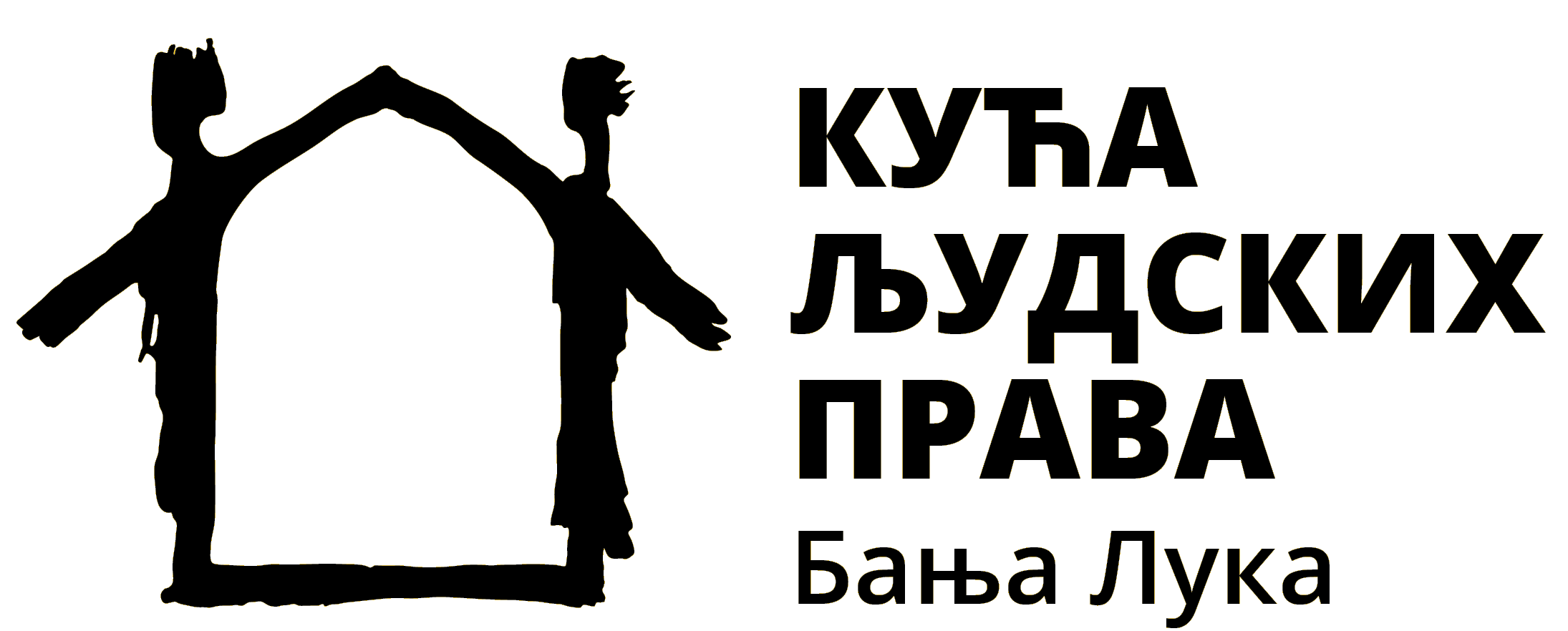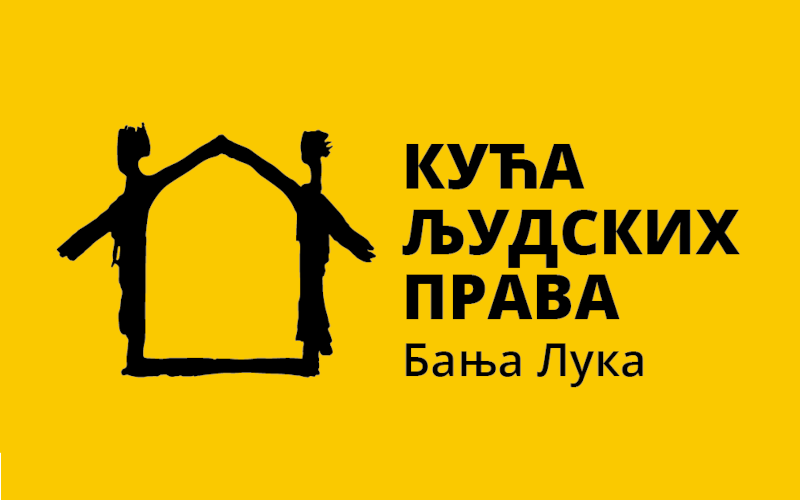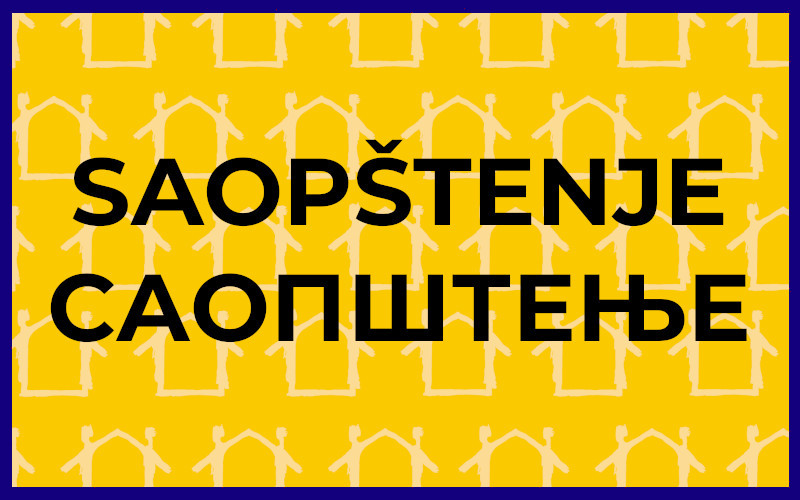Very often we can hear statements like “it is my human right”, “I am going to Strasbourg” or “we will chase all the way to the Court of Human Rights”. They are used literally every day, by neighbors who argue about the border or brothers who argue about the right to the house, over politicians who fight for votes, and even individuals who are taken to the police station.
However, are they all entitled to the protection of human rights?
Who, how and when can address the European Court of Human Rights?
What does the European Court judge?
The European Court of Human Rights has jurisdiction to decide whether the obligations from the Convention for the Protection of Human Rights and Fundamental Freedoms are respected. This convention is better known here as the European Convention on Human Rights.
The European Convention is an international instrument for the protection of human rights that was signed in Rome in 1950 and entered into force three years later. The basic text of the Convention has been supplemented several times by protocols in which new rights have been specified.
When it comes to Republic of Srpska and the Federation of Bosnia and Herzegovina, i.e. Bosnia and Herzegovina, this Convention is a very important instrument for the protection of human rights. The rights and freedoms stipulated by the European Convention and its protocols are directly applied in BiH, and have priority over all other laws. Laws should also be harmonized with it.
In addition, it is not necessary to adopt special regulations for the application of the Convention, because it is applied according to the Constitution of BiH itself, and an individual can directly refer to it when protecting his/her rights. The European Convention was ratified in 2002, with which BiH entered the European system of human rights protection, and its citizens were given the opportunity to address the applicant’s petition to the European Court of Human Rights.
All levels of government are obliged to respect the provisions of the European Convention before all laws in the country, when it comes to human rights, because the Convention has become part of the internal legal system, which means that it is binding for all domestic courts and other state authorities. This is especially important in case of contradictions and inconsistencies between the European Convention and domestic laws.
In proceedings before public authorities, citizens can directly refer to the European Convention and the jurisprudence of the European Court. The verdicts of the European Court are in fact interpreters of the text of the European Convention, with which help the same is elaborated and explained. All verdicts of the European Court contain precedent standards “that have the status of binding legal norms”, but they are also the way to see the European Convention as a living instrument that must be interpreted in the light of today’s conditions.
Who can complain to the European Court?
In order to protect the rights arising from the European Convention, it is necessary to address the European Court of Human Rights with an applicant’s petition (also called an application in various places, but also a complaint, request, appeal, petition, etc.), which is submitted by individuals or organizations.
Every citizen of Bosnia and Herzegovina can submit an application to the European Court in Strasbourg if he/she believes that he/she are personally and directly the victim of a violation of the rights provided for by the European Convention and its protocols, taken that the person who complains does not have to be a citizen of the entities or BiH.
It is necessary that the violation of rights from the European Convention against which the person complains was committed by one of the signatory states of the Convention through its public authorities with one or more acts.
Application conditions and deadline
The petitioner of the applicant must be a direct and personal victim of the violation of the right he/she is reporting. There is no general appeal against a particular law or procedure because it is unfair, bad or unconstitutional.
Also, there is no possibility of appeal on behalf of other persons, unless these persons are clearly indicated, and the applicant is their representative. For more on this and other questions about filling out the application itself, it is good to see the Instructions for Filling out the Application Form.
The application can be submitted by a physical or legal entity.
The person who sends the application must first use all legal remedies that could solve the situation he/she is complaining about in BiH. Therefore, the competent authorities in the state must first of all be given the opportunity to correct violations of rights. In some civil proceedings in Srpska, it may look like this: when the basic court renders its verdict, the legal remedy for its verdict is an appeal to the district court, the revision is filed with the Supreme Court of the Republic of Srpska, and the appeal to the Constitutional Court of BiH which is the last instance that must be passed before applying to the European Court.
This rule is applied with a certain degree of flexibility, which is not too broad. Applicants are obliged to exhaust only those internal legal remedies that are theoretically and practically available to them in the subject time and through which they can directly initiate the proceeding, which means that these must be legal remedies that are available, that can provide legal satisfaction in in relation to their complaints and which have a reasonable prospect of success.
However, it is not enough just to use these legal remedies, because during appeals, violations of the provisions of the European Convention that the applicant complains about must be clearly stated.
From the date of finality of the decision of the highest judicial body in the country (mainly: the Constitutional Court of BiH), the petitioner of the application has a period of four (4) months to submit the application. After the expiration of that period, the European Court will not accept the application. The period of four months, in principle, as stated in the aforementioned Instruction, runs from the date when the decision of the highest competent domestic court or authority was made or when such a decision was delivered.
Against whom the application is filed?
The application of the applicant can be filed against one or more states bound by the European Convention which has violated the provisions of the Convention.
One or more contested actions must come from the public authorities of that or those countries. The European Court does not deal with complaints against individuals or private entities, such as companies.
Likewise, the European Court cannot be complained about the violation of another international document other than the European Convention, such as the Universal Declaration of Human Rights or the International Covenant on Economic and Social Rights. Complaints to the European Court are exclusively about human rights violations listed in the European Convention.
How to submit application?
The applicant addresses the European Court by sending a duly completed and signed application form, which can be downloaded from the European Court’s website.
The application can be written in one of the official languages of the European Court (English or French), but also in languages that are in use in BiH. Therefore, the application can be written in the language of the Serbian, Croatian or Bosniak people.
In the application form, it is necessary to carefully and legibly fill in all sections related to the case of the person submitting the application, sign it and send it as soon as possible, because of the four-month deadline, after which it will not be possible to protect the rights. The form is downloaded in PDF format and can be filled out on a computer. Complaints should be based on reliable evidence, they must be justified by being clearly described and supported by “documents, decisions, medical reports, witness statements and other appropriate material”.
Therefore, the application cannot be sent by e-mail, fax or via WhatsApp or Viber, and after filling out the application and printing it, the form with copies of the documents should be sent by registered mail to the address of the European Court:
The Registrar
European Court of Human Rights
Council of Europe
67075 Strasbourg Cedex
France
Therefore, the European Court will take into account only the original of the application form that was sent by regular mail. Also, it is not necessary to personally come to Strasbourg to present the case orally, because it will not be considered faster that way.
It is also very important not to make mistakes when filling out the application, so compliance with the prescribed form is very important for the European Court to take the application into account.
At this stage of the procedure, it is not necessary to have a lawyer for representation, but it is good to have one precisely because of possible mistakes when filling out the application form. Of course, it should be a lawyer who is versed in human rights law and who has experience in communication with the European Court. The list of lawyers who represent citizens in BiH can be found on the websites of the bar associations of the Republic of Srpska and the Federation of BiH.
In exceptional circumstances, the European Court may order interim measures, when the applicant is exposed to a serious risk of being physically harmed.
The applicant will be informed in writing form about any decision that the European Court makes. Examination of documents is free of charge and the individual bears only his own expenses, such as, for example, correspondence costs.
The applicant will need a lawyer as soon as the application is submitted to the government, that is, when the European Court accepts the application and enters into its resolution.
How the proceedings before the European Court are processed?
The European Court first examines whether the applicant’s application is admissible. This means that the case must meet certain conditions from the European Convention. If these conditions are not met, the application will be rejected and will not be discussed.
If the application or one of the allegations is declared inadmissible, this decision is final and irrevocable. If the applicant’s application or one of the allegations is declared admissible, the European Court encourages the applicant and the state against which the applicant complains to reach a settlement.
In the case that a settlement is not reached, the European Court assesses whether or not there has been a violation of the provisions of the Convention. If the European Court establishes a violation of the provisions of the European Convention, it may provide the applicant the just satisfaction consisting of financial compensation for damages.
If the European Court finds that there has been no violation of the rights specified in the Convention, the applicant will not have to pay any additional costs.
When it finds that a certain state has violated one or more rights, the European Court delivers a verdict, which has binding force and the state to which the verdict refers is obliged to execute it.
What the European Court does not do!
The European Court does not have jurisdiction to annul domestic decisions or repeal laws in member states. Nevertheless, court verdicts have influenced and influence changes in laws and practices in certain countries.
Thus, the United Kingdom banned physical punishment in public schools by law, Greece adopted amendments to the law on pre-trial detention, and Austria modified many of the provisions of the Guidelines on the Treatment of Prisoners in Hospitals. Due to the verdicts of the European Court in cases of electoral discrimination, such as Sejdić and Finci v. BiH, Pilav v. BiH, Zornić v. BiH, etc., Bosnia and Herzegovina should also change its regulations.
It is very important to emphasize that the European Court does not act as a higher court in comparison to domestic courts and is not at the top of the hierarchy of courts in the country.
The European Court does not re-judge cases and has no jurisdiction to annul, modify or revise the verdicts of domestic courts. The task of the European Court is not to review the conclusions of regular courts regarding the factual situation and the application of substantive law, but to examine whether there has been a violation of human rights.
The European Court receives tens of thousands of complaints every year and does not have the possibility to consider “trivial complaints, those that are repeated and do not make any sense, as well as those that do not belong to the type of cases that an international supervisory institution should consider”. Such complaints can be rejected as an abuse of the right to complain, which can also happen if the applicants “use inappropriate, offensive or unpleasant language”. In addition, more than 90% of applications are rejected as inadmissible, often because the applicants complain about the outcome of the proceedings before domestic authorities, and not about a specific violation of human rights.
Sources; for more on this topic see:
Convention for the Protection of Human Rights and Fundamental Freedoms – ECHR, [Council of Europe, European Treaty Series Nos. 005, 009, 044, 045, 046, 055, 114, 117, 118, 140, 146, 155, 177, 187, 194, 204, 213 and 214]
Constitution of Bosnia and Herzegovina – Annex IV of the General Framework Agreement for Peace in Bosnia and Herzegovina – Constitution of BiH, [negotiations started in Dayton on November 21, 1995, and the agreement was signed in Paris on December 14, 1995]
Dejan Lučka, Human Rights in Bosnia and Herzegovina 25 years after “Dayton” (Cure for the Bloody Conflict as Today’s Foundation of Human Rights), [Friedrich-Ebert-Stiftung, Sarajevo: 2020]
Dejan Lučka, How to Protect Your Human Rights? – HPYHR, [Banjaluka Centre for Human Rights and Friedrich Ebert Stiftung, Banja Luka: 2016]
Elma Arifagić-Veledar, AIRE Center, “Practice of the European Court of Human Rights in relation to Bosnia and Herzegovina”, Legal Chronicle, [High Judicial and Prosecutorial Council of Bosnia and Herzegovina, AIRE Center: 2015]
Monica Macovei, Freedom of Expression – A Guide to the Implementation of Article 10 of the European Convention on Human Rights, [Directorate General of Human Rights – Council of Europe: 20042]
Loizidou v. Turkey, [Application no. 15318/89, March 23, 1995]
A Practical Guide through Eligibility Requirements, [Council of Europe/European Court of Human Rights, 2019]
Your Application to the ECHR: How to Apply and How Your Application is Processed, [European Court of Human Rights, https://www.echr.coe.int/documents/d/echr/your_application_eng]
Chart of Signatures and Ratifications of Treaty 005, [https://www.coe.int/en/web/conventions/full-list?module=signatures-by-treaty&treatynum=005]
Instructions for Filling out the Application Form
The text was created thanks to the support of the European Endowment for Democracy.
Cover photo: Evropski sud za ljudska prava – Richard Rogers Partnership and Atelier Claude Bucher Architectes, [Author: Dejan Lučka]
The text was downloaded from the website of Dejan Lučka on the following address: https://dejanlucka.com/kako-se-zaliti-evropskom-sudu-za-ljudska-prava/



